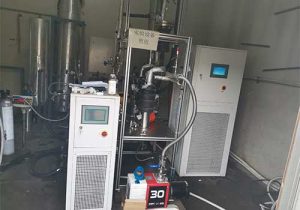industrial process heaters
Industrial Process Heaters: Types, Applications, and Market Trends
Industrial process heaters are critical components in many industries, providing the necessary heat for processes such as distillation, drying, and chemical reactions. These heaters come in a variety of types, each designed for specific applications and heating needs. This article discusses the different types of industrial process heaters, their applications, and the market trends shaping the industry.

Types of Industrial Process Heaters
Flanged Heaters: Commonly used in water treatment, chemical, and petroleum industries, flanged heaters are electric immersion heaters that apply direct heat to liquid media. They are designed with an ANSI-rated flange and can be made from various alloys to resist corrosion and maintain longevity.
Circulation Heaters: Also known as inline heaters, these are used to heat liquids like heavy fuels, oils, and water-like fluids. They include a pump that circulates the liquid through a closed reheated pipe circuit, ensuring even heating.
Band Heaters: Used for heating cylindrical surfaces such as barrels, pipes, and nozzles, band heaters provide uniform heating and are suitable for a variety of industrial applications, including plastics processing and food processing.
Over-the-side Heaters: Popular for their economic use and versatility, these heaters can be custom-designed to fit any container in need of heating, making them an economical choice for budget-conscious applications.
Screw Plug Heaters: Popular for small-scale applications, screw plug heaters are versatile and easy to install. They are used in industries such as chemical, food and beverage, and HVAC systems for applications like water heating and process air heating.

Applications of Industrial Process Heaters
Industrial process heaters are deployed across a range of industries for various applications:
Chemical Industry: Used for distillation processes, where components of a mixture are separated based on their boiling points, and for controlling the cooling process to induce crystallization of desired compounds.
Oil and Gas: Used in refineries and gas processing plants for heating process streams and maintaining necessary temperatures for separation and purification processes.
Food and Beverage: Used for processes such as pasteurization, sterilization, and drying, ensuring the quality and safety of food products.
Manufacturing: Used in processes like injection molding, where heaters provide the necessary heat for material plasticization and molding.
Market Trends in Industrial Process Heaters
The industrial heater market is influenced by several trends:
Environmental Concerns: There is a growing awareness of the environmental impact of industrial processes, leading to a demand for heaters that are more energy-efficient and have lower emissions.
Energy Efficiency: The market is moving towards electric technology, with smart heaters being developed that offer remote monitoring, control, and predictive maintenance, optimizing heating processes and reducing downtime.
Sustainable Practices: There is an increased interest in integrating renewable energy sources into industrial heating systems, such as solar thermal systems, biomass heating, and waste heat recovery solutions, aiming to reduce reliance on fossil fuels and lower overall emissions.
Safety Standards and Regulations: Different safety standards, such as those set by UL and CE, ensure that industrial heaters meet safety requirements and set limits on emissions of pollutants to reduce environmental impact.
Innovations in Industrial Process Heaters

Innovations in the field of industrial process heaters include:
Smart Heaters with IoT Capabilities: These heaters enable remote monitoring and control, allowing for more efficient heating processes and reduced downtime.
Integration of Renewable Energy Sources: The incorporation of renewable energy sources into heating systems is a growing trend, contributing to more sustainable industrial processes.
Customization and Versatility: Heaters are being designed with more customization options to fit a variety of applications and container sizes, providing flexibility and cost-effectiveness.
In conclusion, industrial process heaters are a vital part of many industrial processes, with a variety of types available to meet specific heating needs. The market is driven by environmental concerns, energy efficiency, and the push for sustainable practices. Innovations in the field are leading to smarter, more efficient, and more sustainable heating solutions. As the market continues to evolve, it is likely that we will see further advancements in energy efficiency and sustainability, ensuring that industrial process heaters meet the demands of a changing world.
Related recommendations
Application Industries and Fields of Chillers
1201Application Industries and Fields of Chillers Cold water machine can be used for vacuum equipment. Such cold water machines also meet the needs of high -quality vacuum equipment, such as mol...
View detailsWhat should be noted in the chiller manufacturing?
1018What should be noted in the chiller manufacturing? During the manufacturing process of the cooler, the following points need to be noted: 1. Material selection: Select materials ...
View detailscool and heat
577The Dynamics of Cool and Heat: Understanding Thermal Exchange The interplay of cool and heat is a fundamental aspect of our physical world, governing the behavior of matter and energy in variou...
View detailswater cooler system
356IntroductionWater cooler systems, also known as cooling water systems, play a pivotal role in various industries and everyday applications. Their primary function is to dissipate heat generated b...
View details
 LNEYA Chiller
LNEYA Chiller






HelloPlease log in